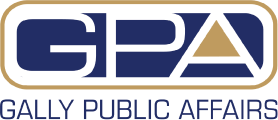At first, the Chesapeake and Atlantic Coastal Bays 2010 Trust Fund was just like all the budget lines in the Maryland state budget.
It, like the others, faced deep cuts to balance the state’s more than $30 billion budget for 2011 in difficult economic times. Gov. Martin O’Malley proposed allocating $20 million to the fund, but the State Senate and the House of Delegates proposed slashing as much as $10 million.
And then Eric Gally of Gally Public Affairs went to work, and when all was said and done the fund ended up with $22.5 million for 2011 – more than the governor proposed and more than either chamber of the legislature enacted.
“I am 100 percent certain we wouldn’t have gotten those funds without him,” said Kim Coble, Maryland Executive Director of the Chesapeake Bay Foundation, one of the many organizations or individuals that receive funding through the fund. “It was unprecedented.”
At strategy meetings, Coble said Gally suggested the best way to get legislators behind the fund was to focus on the economic impact the money had on workers in the state.
“He contacted folks who got money in the past, and brought them down to tell their real world stories,” Coble said. “He knew it was a good year to pull that card out.”
Grants from the fund are also supported by the much smaller Chester River Association, another ongoing client of Gally’s.
In 2009 the two worked together on another project blocking designed to block homeowners from building private wastewater treatment plants that could seriously pollute the Bay and its tributaries.
The state required that all homes either be hooked into a sewage treatment plant or have an individual septic system to safely dispose of biological sanitary waste. However the land in question was outside the scope of the closest municipal sewage system, and the ground wouldn’t support a septic system, said Bob Parks, association executive director.
So the landowner planned instead to build a treatment plant just to serve the property.
“Those have been a disaster in Virginia, Florida and in the midwest, because individual homeowners don’t take care of them,” Parks said, adding that when the systems aren’t cared for, they can dump.
When lawsuits failed to block the landowner, the association hired Gally to close the loophole in state law that didn’t forbid private sewage facilities.
As with other lobbying efforts, Gally and Parks met to determine the best approach for changing the state law.
Then Gally met with legislators, explained to them the loophole in the law that could threaten state waterways, and got the elected officials to agree to change it.
“I’ve seen him work with the legislators,” Parks said. “They have a tremendous amount of respect for him. They listen to him. He’s knowledgeable. He does such a great job.”
But Gally isn’t just about environmental issues. Gally Public Affairs has represented the Maryland chapter of the American Cancer Society for the last 14 years.
“Eric understands the process, he’s got it down,” said Bonita Pennino, government relations director for the society. “His input during our planning is right on the money.”
He may be at his busiest when the legislature is in session, but much work is done in the months before and after the senators and delegates are hardest at work.
There’s the planning and strategies he and clients put together to determine the best way to succeed at changing laws and influencing budget allocations, Pennino said.
For example, in 2007 Gally helped the Maryland chapter steer the Clean Indoor Act from concept to law.
“He guided that process and helped us craft our message so it was meaningful,” she said.
Then he helped identify key members of the legislature as well as potential sponsors for the legislation.
When the bill was being debated, he told society members and volunteers when was the most important time to present their statements.
“He knows a lot of people,” Pennino said. “And he’s good at timing to get the most out of our activities.”
Those efforts paid off, and today smoking is forbidden in all enclosed workplaces, including bars and restaurants.
These are just a few examples of the behind-the-scenes work Gally has been involved with since 1996. Other projects include measures requiring most public middle and high schools be designed with gymnasiums; the Maryland State Police Training Commission develop a cultural competency model training curriculum for officers assigned to schools; and nurse practitioners have an approved attestation of collaboration agreement with a licensed physician and to work with physicians and health care providers as needed.
“He’s worth his weight in gold,” Coble said. “He gets the job done, and he’s a great guy.”

